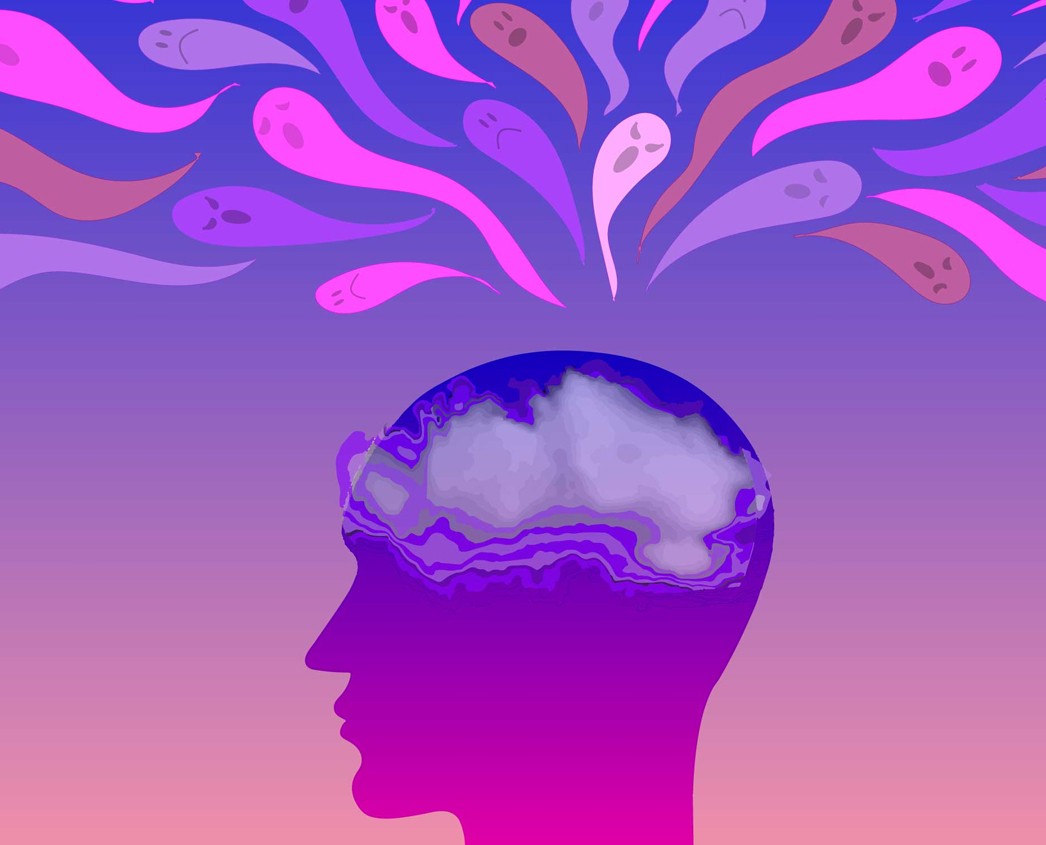Harmony Unveiled: A Comprehensive Guide to Anxiety in Traditional Chinese Medicine
In Traditional Chinese Medicine (TCM), anxiety is seen as a manifestation of imbalances in the body's Qi (energy) and disruptions in the harmonious flow of the organs. Here's a detailed overview of anxiety in TCM, covering causes, symptoms, syndromes, diagnosis, treatment, dietary recommendations, cautions, and more:
Causes of Anxiety in TCM:
- Liver Qi Stagnation:
- Emotional stress, frustration, or repressed emotions can lead to the stagnation of Qi in the liver.
- Common emotions associated with this pattern include anger, resentment, and irritability.
- Heart and Spleen Imbalances:
- Disharmony between the heart and spleen may arise from overthinking and excessive mental work.
- Imbalances in the digestive system can contribute to this pattern.
- Kidney Yin or Yang Deficiency:
- Chronic stress or overwork can deplete kidney energy, resulting in anxiety.
- Yin deficiency may manifest as hot flashes or night sweats, while yang deficiency may lead to cold limbs and fatigue.
Symptoms of Anxiety in TCM:
- Restlessness:
- An internal sense of unease and inability to find calmness.
- Constantly feeling on edge or unable to relax.
- Palpitations:
- Awareness of the heartbeat, often accompanied by a rapid or irregular pulse.
- Heart palpitations may be more pronounced during anxious episodes.
- Insomnia:
- Difficulty falling asleep or staying asleep due to racing thoughts.
- Waking up frequently during the night.
- Muscle Tension:
- Tension and tightness in the neck and shoulders.
- Clenching of the jaw or teeth grinding during periods of stress.
- Digestive Issues:
- Anxiety can affect the digestive system, leading to symptoms such as bloating, indigestion, or changes in bowel habits.
- Loss of appetite or, conversely, emotional eating may occur.
In Person With Heshoutang Natural Health Members
With Heshoutang Natural Health Online Members
Fill Out the Questionnaire by yourself
Syndromes Associated with Anxiety:
- Liver Qi Stagnation Syndrome:
- Symptoms may include hypochondriac pain, chest tightness, and a tendency to sigh.
- Emotional symptoms can include mood swings, frustration, and a sense of being emotionally stuck.
- Heart and Spleen Imbalances Syndrome:
- Overthinking and excessive mental work can lead to a preoccupation with worry.
- Digestive symptoms may include poor appetite, bloating, or loose stools.
- Kidney Yin or Yang Deficiency Syndrome:
- Yin deficiency may present with night sweats, dry mouth, and heat sensations.
- Yang deficiency may result in cold limbs, fatigue, and a feeling of weakness.
Diagnosis in TCM:
- Pulse and Tongue Diagnosis:
- A wiry or choppy pulse may indicate Liver Qi Stagnation.
- Changes in the tongue coating and color can provide insights into the overall state of the body.
- Observation and Inquiry:
- Assessing emotional state, sleep patterns, and daily stressors.
- Inquiring about lifestyle factors, dietary habits, and any other relevant information.
- Palpation of Meridians:
- Detecting areas of tenderness or stagnation along energy pathways, particularly in the liver and spleen meridians.
TCM Treatment Approaches:
- Acupuncture:
- Needles are inserted into specific points to unblock the flow of Qi and promote relaxation.
- Common points include Liver 3 (Taichong) and Heart 7 (Shenmen).
- Herbal Medicine:
- Formulas may include herbs like Chai Hu (Bupleurum) for Liver Qi Stagnation or Suan Zao Ren (Sour Jujube Seed) for insomnia.
- Adaptogenic herbs may be used to tonify Qi and nourish the kidneys.
- Moxibustion:
- The application of heat to specific acupuncture points helps invigorate Qi and promote a sense of warmth and grounding.
- Often used on points related to the kidneys and spleen.
- Cupping Therapy:
- Cups are applied to the skin to create suction, promoting blood circulation and easing muscle tension.
- Can be particularly beneficial for relieving physical symptoms associated with anxiety.
Diet Helps:
- Moderation in Stimulants:
- Limit or avoid excessive caffeine, which can exacerbate anxiety.
- Reduce spicy or greasy foods that may contribute to internal heat.
- Balanced Diet:
- Emphasize a diet rich in leafy greens, whole grains, and lean proteins.
- Include foods with calming properties, such as chamomile tea or oats.
- Herbs and Teas:
- Calming herbs like Huang Lian (Coptis) or Bai Shao (White Peony) may be included in herbal formulas.
- Herbal teas with relaxing properties, such as chamomile or lavender, can be beneficial.
Cautions:
- Avoiding Overthinking:
- Encourage mindfulness practices to calm the mind.
- Discourage excessive dwelling on negative thoughts.
- Limiting Stimulants:
- Excessive caffeine or spicy foods may exacerbate anxiety symptoms.
- Individual tolerance varies, so moderation is key.
Lifestyle Recommendations:
- Stress Management:
- Incorporate stress-reducing activities such as meditation, deep breathing exercises, or yoga.
- Establish healthy boundaries to manage stressors effectively.
- Adequate Rest:
- Prioritize sufficient and quality sleep to support overall well-being.
- Create a calming bedtime routine to promote relaxation.
- Mind-Body Practices:
- Engage in activities like Tai Chi or Qigong to balance energy and promote relaxation.
- Foster a connection between the mind and body through mindful practices.
It's crucial to consult with a qualified TCM practitioner for an individualized assessment and treatment plan. TCM treatments aim to address the root causes of anxiety, restore overall balance in the body's energy, and promote a sense of harmony and well-being.
When you subscribe to the blog, we will send you an e-mail when there are new updates on the site so you wouldn't miss them.














Comments